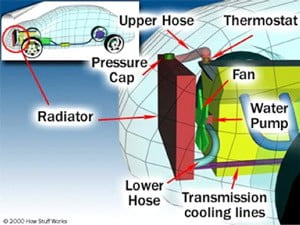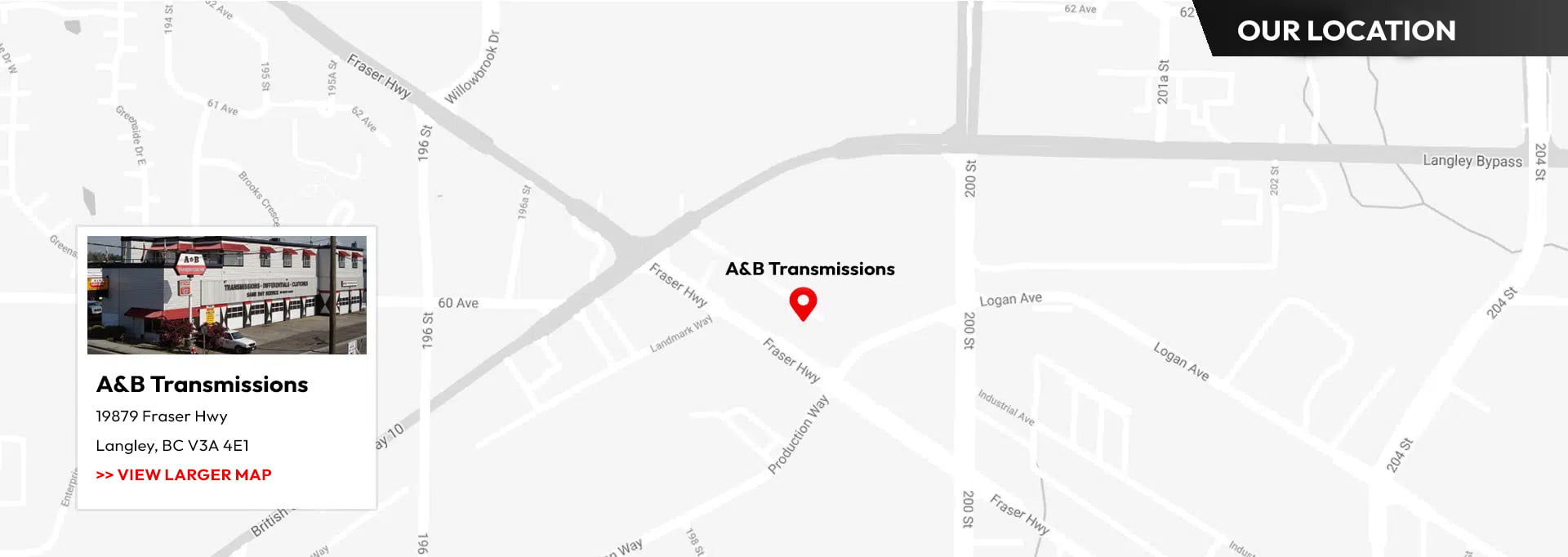
Almost all vehicles have cooling systems of some sort, there are a few different types, but the majority of them are relatively similar. Today we are going to explore three things:
- The main purpose of the cooling system.
- Some of the major components of the cooling system.
- The benefits of regular cooling systems servicing versus the consequences of neglect
Remove Excess Heat of the Engine
The main purpose of the cooling system is to remove the excess heat of the engine, when functioning properly, the cooling system also maintains an optimum temperature for the engine. Modern engines are designed to run at a specific temperature in order to maintain optimal fuel efficiency. The cooling system not only keeps the engine from overheating, it helps bring the vehicle up to operating temperature as fast as possible when first starting up. This is controlled via multiple components in the system.
Antifreeze
The most common components found in the majority of vehicles can be: Coolant (also known as antifreeze), water pumps, radiators, cooling fans, thermostats, hoses, belts, and the radiator cap. Coolant is the fluid that is the life blood of cooling system; it carries the heat from the engine to the radiator. The radiator dissipates the heat from the coolant as it passes through and heads back to the engine. The coolant is pushed through this process by the water pump, which is driven by the belts while the engine is running. However, if the coolant were to always flow freely like this the engine would likely never get to temperature, which is required to keep optimal performance, as noted above. The flow is control by a thermostat which opens and closes as needed to regulate the temperature.
As you can see there is a lot of work for the cooling system to do, and while it is fairly easy to maintain, it does require periodic attention to continue optimum performance.
Using the correct coolant
The most common service is to exchange the coolant at regular intervals; this is to prevent the coolant from changing its properties and reducing its effectiveness, to even causing damage! Neglect in doing a simple thing like this can end up being costly with failures of hoses, radiators, water pumps, or worse. Most people may remember the typical coolant being green in colour, but technology advancements have carried over even into coolant. It is critical to make sure you are putting in the correct coolant if you ever need to top it up, most coolants are a specific colour in order to identify it easier. Feel free to come by if you have any questions or concerns with your coolant, we’ll be glad to help out.


